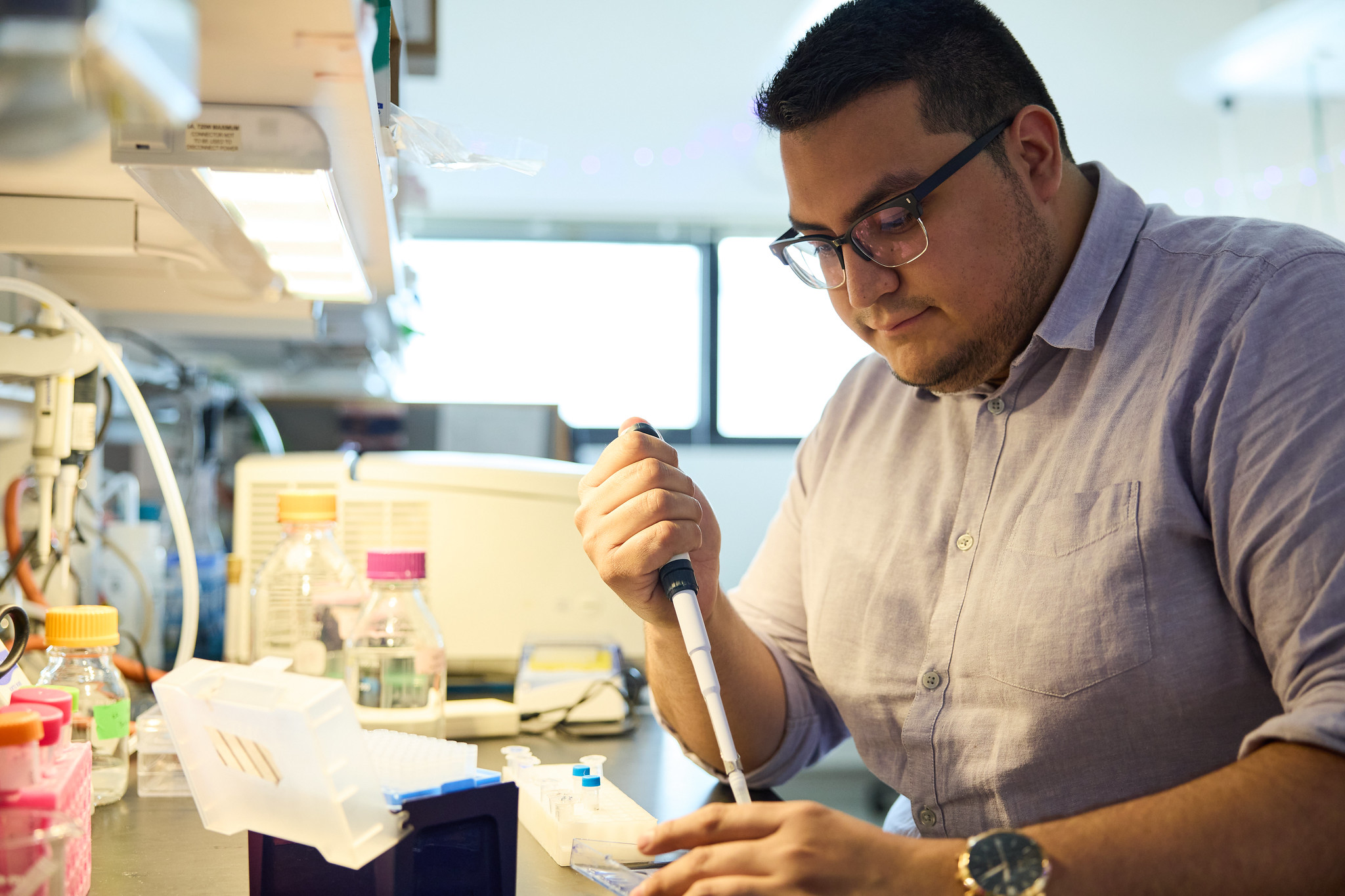Victor Miranda
G4 in Andrew Kruse’s lab at Harvard Medical School
Hi everyone! I’m a current G5 PhD student in Andrew Kruse’s lab at Harvard Medical School (HMS). My thesis project focuses on developing a toolkit to modulate the function of G protein coupled receptors (GPCRs) in very specific cellular contexts, as single GPCRs can play a key role in regulating multiple diverse physiological process and on-target toxicity can be troublesome when targeting these receptors. For my undergraduate studies, I attended the University of Arizona (UA) where I majored in microbiology and minored in biochemistry. At the UA I had the privilege of working as an undergraduate research assistant in Dr. May Khanna’s lab (now at NYU) where I was involved in projects focused on identifying small molecule modulators of proteins and RNAs implicated in neurodegenerative diseases. Although my previous research focused on developing small molecules, I joined the Kruse lab for my thesis work because it focuses on my broader research interests of understanding and addressing human health issues. The lab has a great expertise in working with GPCRs and ultimately it is a wonderful environment to gain experience in molecular pharmacology and basic research impacting therapeutic development. Furthermore, the department that the Kruse lab is in (Department of Biological Chemistry and Molecular Pharmacology) has a wonderful sense of community and holds many events for its trainees and faculty for science, networking, and socializing. Outside of lab, I love to spend time with friends, attend/follow sporting events, and spend time with my two dogs and my better half.
When I was interviewing, I chose the Chemical Biology program because of the wonderful students in the program; both enrolled and interviewing students. Additionally, the program isn’t limited to a single Harvard campus, so you can join any lab with Harvard affiliation, whether that be on the main campus, HMS, Broad Institute, or Massachusetts General Hospital; so the options are abundant! Not to mention that Boston is a wonderful city to live in and do science. Boston is considered a hub for the life sciences so collaborations, help from other grad students, and postdocs are at every turn.

